What to do about the mass manipulation in GH Politics
1. What is Politics and what was its original purpose to man in general? Politics in general according to David Easton is the autoritative allocation of values. This means, for one to act politically, that action got to be backed with a certain authority or power, otherwise the action is either illegal, oppressive or null and void.
How does one gain that power to act and why must that power be present? One may ask.
That takes us back to argument about the state of nature, where according to Thomas Hobbes life was solitary, poor, nasty, brutish, and short in other words survival of the fittest. John Locke and some other thinkers propounded a less wicked picture of the state of nature and that there was no violence but the property of man was not safe.
In both situations however, man thought it wise to hand over their rights and freedoms to one authority that will regulate the system, hence the social contract.
The wielders of that power then became the political actors and though the purpose differs from scholar to scholar, they all agree that man needed a central authority to avoid sliding back into the state of nature.
Over the years the philosopher king proposed by Plato, or was it Machiavelli?hasn’t really made sense to evolving nations and what has been adopted is to hand over that power to a group of people, mostly with one ideology.
And also as the years went by, violence erupted among nations and states over who has the mandate to wield that power and who gets to decide who should weild it.
2. The Context Of Ghana
We all already know that before contact with pinkmen the black man either lived in acephalous groups or was ruled by a monarch or a priest. And it is no different in the case of those that lived on the coast of Guinea and their neighbors. After the Berlin Conference and the World wars and their aftermath, Nations and states emerged in Africa like our very own Ghana.
Like every nation, Ghana needed its own rulers and sure, violence played its way into the politics of its people.
The first report of violence in the history of Ghana dates back to the advent of the National Liberation Movement (NLM), (Frempong, 2017).
After that infamous period of bloodshed, violence has become more of a necessary factor for the Ghanaian to play partisan politics, not to say violence did not play a role in the politics of the local dwellers before contact with pinkmen. The Ashanti empire was forged out of bloody wars, a fact no one has attempted to deny.
The Heart (Contemporary day Politics).
What we have experienced in recent times however, has shown that the Ghanaian is more loyal to political colors than to his very self.
The 2016 electioneering period is the best case study.
Jobless youth and ‘elite‘ young men and women taking to the streets to sing verses of hallelujah to bellyful politicians who will without a second thought, sacrifice their lives, if that will get them into the beautiful brown building at Ridge in Accra.
Perhaps, just perhaps, if political parties could be taken out of the administration of our dear nation, the upcoming generation will be loyal to the Ghanaian dream, which i define as (“…from now on today, we are no more a colonial but a free and independent people”- Nkrumah) and not to a color. Or the freedom in the extract might as well be replaced with foolish.
But can we really argue that Ghana hasn’t really tried an apolitical system before? Let’s rewind shall we.
Military Rule
(1966-1969, 1972-1979, 1981-1992)
These periods in the history of the republic of Ghana will work against anyone who would claim Ghana never operated an apolitical system.
Shall we then go back to military rule as a means of curbing blind politicking?
Well it has been argued that the government with the most success in both administration and development was that of I.K. Achaempong so why not?
But that raises the question, is development the only thing citizens want from their government?
Of course not, protection of their inalienable rights some argue surpasses any form of development. Achaempong and his entourage denied the people these, capital among them was right to vote and be voted for. And for ‘Junior Jesus’ ? Well if i am the one to tell you about the infamous killings that took place under his authority following the aftermath of June 4th, then you probably shouldn’t be reading this.
And for Kotaka and the NLC? Well, a lot argue they ended a visionary’s dream of turning Ghana into “a country that will be respected among every other country in the world– Nkrumah, 1957“
So for a lot of Ghanaians, especially those who still harbor the pain of military brutality, i say on behalf of all, military rule is a no go area.
So how about we try ‘Sankofaring‘ back to what we had before contact with pinkmen
Monarchy?
The question here is would the adoption of a monarchical structure cure the buffoonery that has plagued the electorate class to the amusement of the governing class?
A flashback to the pre-colonial period may be of help here.
No SHS student would be a novice to the numerous wars fought by the Fante kindom and the Ashanti empire or the Ewes against the Ashantis. So it will be an unnecessary hustle to deny that violence plagued pre-colonial politics as well.
But what motivated those wars is quite different from what motivates the blood shed we see on the media because of political reasons in contemporary times. Those wars were fought to build empires and the like, unlike today where unemployment as a leading factor has led the youth to become weapons for bellyful politicians.
That aside, ‘news ghana‘ has on record that over a hundred ethnic groups exist in Ghana at the moment so if Ghanaians were to decide today that they would adopt a monarchical government, which of these ethnic groups will asume the reigns of power?
The odds are already against us with a very bad image of succession conflict within the ethnic groups themselves, how then can these people come together to form a single unit for governance? And who gets to decide who should asume the role? Kingmakers or an Electoral College? Or the general populace?
And if we can be divided by a polical color to the extent of killing one another what then aren’t we capable of if we become divided on ethnic lines, we cannot say we are angels compared to our Burundi and Rwanda brothers. Dzifa Attivor and Kennedy Agyapong and recently our very own Deputy Agric Minister(Resigned) has shown us that we are just a snap of the finger away from diving into full blown ethnic conflict. So with both historical and contemporary odds against us, I believe replacing the deteriorating partisan politics with a monarchical structure is not the cliché fry pan to fire, but the more realistic fire to fire.
One party state, the way to Go?
In that sense, since we cannot afford sliding back into the state of nature I believe we have one party state as our only option if we want to rid the country of the blind politicking and bloodshed that characterizes our electioneering process.
But then again the question comes up that haven’t we tried that before?
Kwame Nkrumah after 1960 general elections managed to turn Ghana in a de jure one party state and not many are strangers to the aftermath of that decision, but for the very few, 6 years later, the ghosts of that decision ousted him and his CPP from office in what became known as Ghana’s first coup d’etat.
But what happens if we decide to revisit One Party System.
First of all, the most suitable ideology is needed. And then the Political barons that have tortured the current system would need to be fell and from the ruins a new body, for lack of a better word be carved to champion the goal of the Ghanaian.
With one color and one ideology, though it would take perhaps bulldozers to make that happen, the idea of villainizing the other color and therefore spilling their blood would be a thing of the past.
And with that achieved, the politicos will perhaps lose their manipulative status since there’s no rival color to have the buffoons eliminate.
And if a consensus could actually be reached and not cunningly created as Nkrumah did, then maybe, just maybe we do not need apolitical system but a one party state.
With that success realised, the Ghanaian could then focus on the chosen ideology and develop it to fit the needs of the people in all sectors, capital among which are economic development and protection of the inalienable rights of the people. And with that also achieved I believe after 60 years of trying, maybe, just maybe we will finally be in the position to show that …”after all the black man is capable of managing his own affairs.” – (K. Nkrumah, 1957)
OSWALD K. AZUMAH


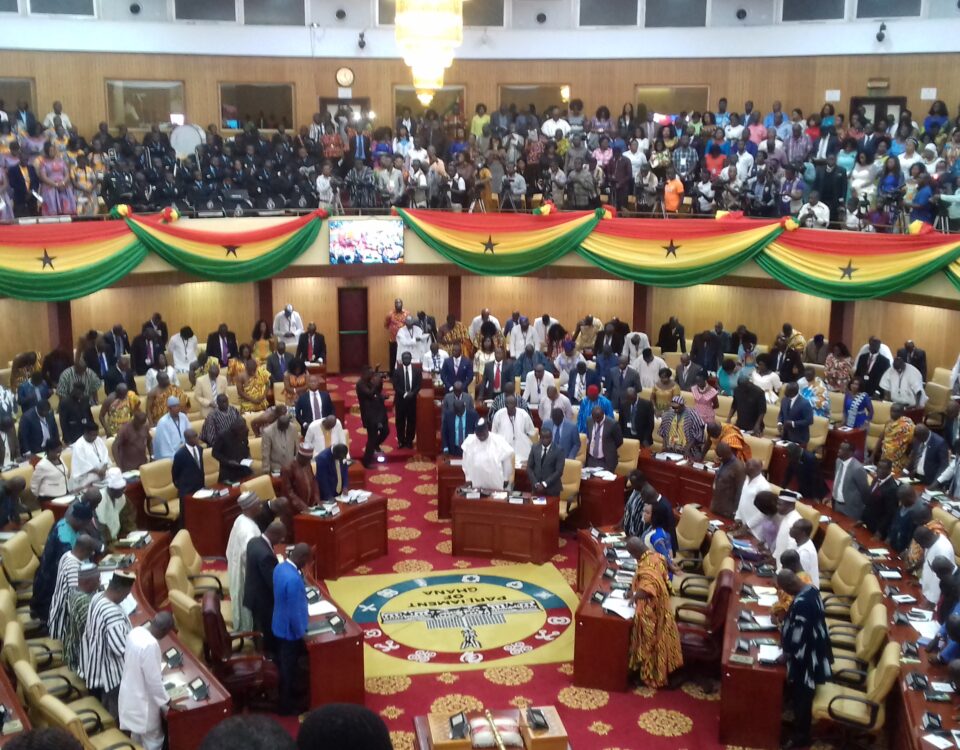
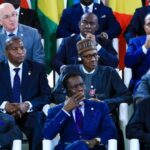
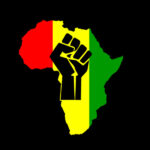

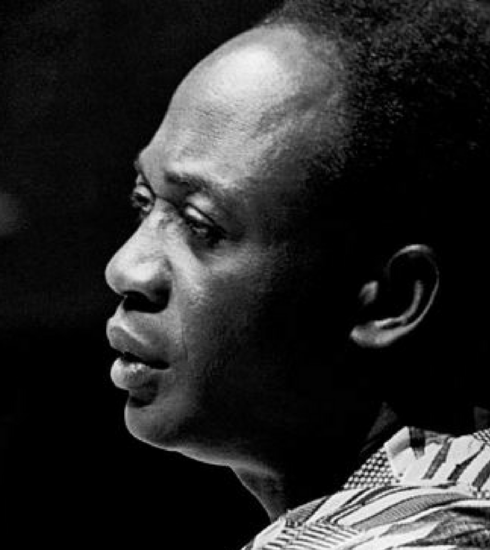
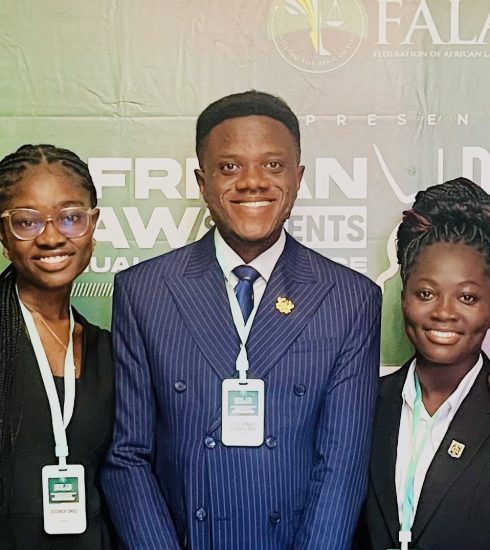
2 Comments
Anthony
8 years agoVery interesting thesis. Only one question begs my mind: if we were capable of violence even in a monarchical system,what shows we cant do more in a one party state where any one who captures the candidacy has at least an 80% chance of becoming the president?
Oswald K. Azumah
8 years agoIf that’s the case I believe there will be no need for violence since the misunderstanding comes when the margin is close. If there’s an 80% chance then the tension is off, no?